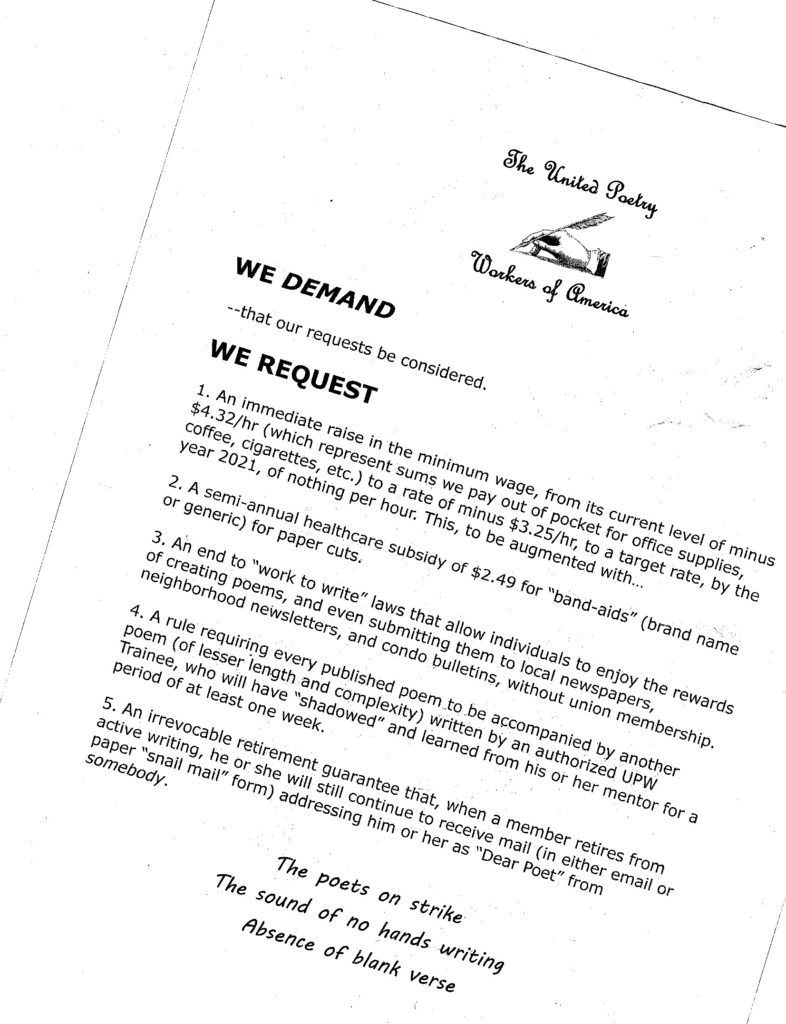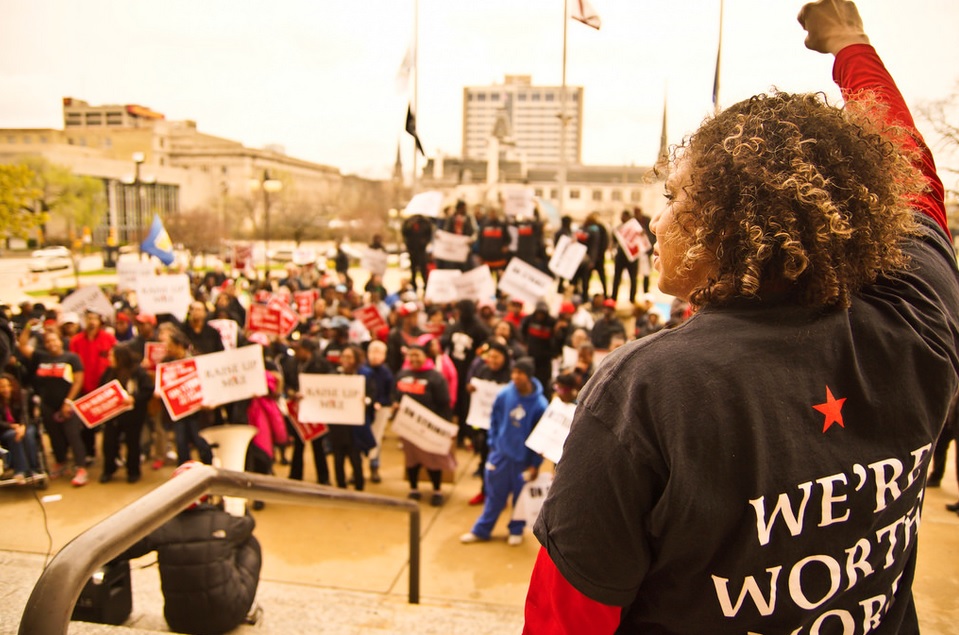CAMBRIDGE, MA – The national strike by the United Poetry Workers of America (UPWA) has entered its second week. The nation’s versifiers, fed up with having worked without a contract for 240 years, have had some success in shutting down the production of most forms of professional poetry, including poems, limericks, light verse, haikus, sonnets, and epics.
Addressing a massive, tumultuous rally of 30 polite people in Harvard Square, Union President Eileen Stevens used a bullhorn to whip the crowd into a state of amiable agreement, asking in a perfectly civil tone, “What do we want?”
“A working life improved, enhanced, and changed!” came the reply.
“When do we want it?”
“As soon as can be practic’ly arranged!”
Other speakers took the stage, both to champion the union’s cause and to deplore those whom it perceived as its enemies —mainly, lyricists, who have been seen crossing picket lines and playing the hated role of “scabs,” filling the jobs of union poets and assisting management in its attempts to break the strike.
Several poets gave disturbing testimony concerning their recent experiences with figures they accuse of using strong-arm tactics to bully, threaten or, worse, embarrass members into abandoning the strike and betraying the union. David Kutler, a high school English teacher from Raleigh, NC, spoke of being visited at his home by “a menacing guy in a sports coat with suede elbow patches and everything,” who “cracked his knuckles and pointed to my poem ‘Spring is Here’ saying, ‘Nice quasi-pastoral celebration of seasonal renewal. Be a shame if it showed up with a lot of typos.” As his listeners booed, Kutler added, “I was appalled. I didn’t know such people existed.”
Stories like this brought vigorous murmurs of condemnation from the crowd, with some members openly vowing to “write a serious letter to The Paris Review.”
Some strikers wielded home-made signs more notable for their literate messages than their artful appearance. (“Sue me,” read one placard. “I’m a writer, not a graphics person.”) The messages included “IAMB, I SAID!”, “STRESS SYLLABLES, NOT POETS,” and “GIVE US WHAT WE’RE OWED AND WE’LL GIVE YOU WHAT WE ODE.”
As union representatives handed out a fact sheet detailing the group’s demand and requests, about a dozen strikers launched into an impromptu chant:
The folks by whom poems are writ
For years have been treated like shit!
We now say Enough!
Try calling our bluff
And your limericks will be written by amateurs and will all end like this or even worse!
The rally concluded with President Stevens reminding the assembled that the ability of the union to win concessions depended on its members’ solidarity.
“In unity there is strength,” she said. “As non-union freelancers, all you get is ‘exposure.’”

